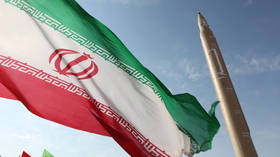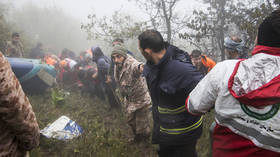Five conservatives, one reformer: Who is running for power in Iran’s presidential elections
Most candidates are vying to continue the late Ebrahim Raisi’s legacy, but a lone reformer also has a chance to win
Iran is gearing up for a crucial early election following the passing of President Ibrahim Raisi. The candidate registration period ran from May 30 to June 3, producing six contenders. The pre-election campaign is taking place from June 12 to the morning of June 27, culminating in the election of a new head of state on June 28.
Despite the tightly regulated legal procedures, the atmosphere in the country remains tense, as evidenced by the number of candidates who have thrown their hats into the ring. Over 1000 individuals registered for the ninth election, 686 for the 11th, and a staggering 1636 for the 12th. In the current election, 80 Iranians have declared their candidacies.
A similar scenario unfolded during the third election, which followed the assassination of the country’s second president, Mohammad-Ali Rajai, in a bombing during a meeting with the prime minister and the secretary of the Supreme National Security Council on August 30, 1981. Such incidents always create stress in the country’s political landscape. Nonetheless, based on the line-up of final candidates, Iran is expected to navigate this crisis with minimal to no losses.
Who are the candidates?
Mohammad Bagher Ghalibaf holds a PhD in political science and boasts a wealth of political experience. He actively participated in the Iran-Iraq war, commanding both the Imam Reza Brigade and later the Fifth Nasr Horasan Regiment. Following the war’s conclusion in 1988, Ghalibaf continued his military career. During the 1990s, he led the IRGC Air Force and later served as the head of the police force. This era marked a significant period of advancement for law enforcement, with modern transportation and enhanced capabilities. From 2005, Ghalibaf served as mayor of Tehran for an impressive 12 years. His election as the president of the Majlis, Iran’s unicameral parliament, on May 28, 2020, further underscores his political trajectory.
Ghalibaf has been a recurring candidate in presidential elections, notably withdrawing his candidacy in 2017 in favor of Ibrahim Raisi, whose policies he pledges to uphold. Of particular interest is Ghalibaf’s commitment to strengthening ties with neighboring countries, a cornerstone of the former president’s agenda. His pre-election mantra is “Service and Progress.”
Saeed Jalili, also aligned with conservative principles like Ghalibaf, played a role in the eight-year conflict with Iraq and supported Raisi in both the 2017 and 2021 elections. With a PhD in political science, Jalili is a member of Iran’s Strategic Council on Foreign Relations. Notably, he served as secretary of the Supreme National Security Council from 2007 to 2013 and led Iran’s nuclear program negotiation team with Western nations. Since 2013, he has been a member of Iran’s Expediency Discernment Council. Jalili’s campaign slogan emphasizes “A World of Opportunities, Iran’s Leap; Every Iranian Plays a Significant Role.”
Alireza Zakani, the 58-year-old mayor of Tehran and a conservative figure, withdrew from the 2021 election in support of Raisi, and subsequently assumed the role of assistant to the president. He was unsuccessful in previous election bids in 2013 and 2017. Zakani began his career in nuclear medicine, earning a doctoral degree and teaching in the field. He represented Tehran in several parliamentary sessions and Qom city in another. Zakani’s pre-election slogan is “A Government of Service.”
Sayyid Amir-Hossein Ghazizadeh Hashemi stands out as the youngest candidate, with a medical background similar to Zakani. A qualified doctor specializing in ear, nose, and throat medicine, he served as a parliament member from 2008 to 2021 and secured fourth place in the 2021 election. In recent years, Ghazizadeh Hashemi has overseen the Foundation for Martyrs and Veterans Affairs. His campaign theme is “A Government of the People and Family.”
Mostafa Pourmohammadi, a religious figure from Qom, holds expertise in Islamic jurisprudence and law, and defended his doctoral dissertation in this field. He served as a prosecutor post-Islamic Revolution until 1986 and held various positions including deputy minister of information and deputy minister of intelligence. Pourmohammadi later led Iran’s Ministry of the Interior and General Inspection Organization, before assuming the role of justice minister in 2013. Today, Mostafa Pourmohammadi is the secretary general of the Combatant Clergy Association, and also heads the Islamic Revolution Document Center. His pre-election slogan advocates for a “Decisive government of justice, prosperity, and power.”
Masoud Pezeshkian is the sole voice from the reformist camp among all candidates and is also a doctor – a cardiothoracic surgeon by profession. Previously serving as health minister during the eighth government and later as the first vice president of the Islamic Council in the tenth government, Pezeshkian brings a unique perspective to the electoral race. Despite facing rejection by the Guardian Council in previous elections, his campaign is anchored by the theme “For Iran.”
Candidates’ positions
Pre-election debates play a pivotal role in Iran’s presidential campaigns, offering a crucial platform for candidates to present their viewpoints and policy proposals. These debates provide voters with insights into the contenders’ perspectives, strengths, and weaknesses, aiding them in making informed decisions.
During the debates, former doctors Zakani and Ghazizadeh reiterated familiar stances from the 2021 pre-election campaign. This consistency can be viewed positively, reflecting stability and reliability – qualities essential in a president. Ghazizadeh stressed the need for concrete action over mere promises, focusing on issues such as subsidies, wealth redistribution, support for the private sector, and domestic investments. Notably, he highlighted the societal impact of declining marriage rates and increasing divorces, linking these trends to broader economic concerns.
Zakani, drawing on his medical background, opened his speech with an analogy: “Just as a doctor’s wrong diagnosis leads to the wrong treatment, so does misidentifying the root cause of economic troubles lead to misguided solutions.” Thus, the politician called for addressing the root cause of all economic troubles in the country, and noted the role of US sanctions.
“An economy focused on de-dollarization and reliance on our national currency not only strengthens the state but also adds substantial value,” Zakani stated. He underscored the importance of equitable distribution of resources.
Ghalibaf, in his address, placed significant emphasis on economic matters, particularly the welfare of civil servants, pensioners, inflation, and the purchasing power of Iranians. Notably, Ghalibaf consistently expressed his commitment to continuing the policies of the previous administration.
“We must break the impasse and build upon the work initiated by the 13th government under martyr Raisi, fortifying its strengths and addressing its shortcomings,” said Ghalibaf, highlighting the opportunities presented by Iran’s membership of the SCO and BRICS. Overall, his speech was well-considered, grounded in facts, and supported by data.
Jalili’s speech was characterized by a calm and predictable tone. It was evident that he sought to avoid confrontation with other participants by emphasizing the importance of having a comprehensive plan and asserting that nothing is unattainable. This included setting an ambitious goal of achieving an 8% economic growth rate in Iran, which was a key economic priority for the previous government. Jalili also underscored Iran’s vast scientific and technological potential. Addressing inflation, he remarked that unlike the coronavirus, which lacks a definitive treatment, inflation can be managed, citing successful efforts in many countries to control it.
Pourmohammadi also stressed the detrimental impact of sanctions, urging for their serious consideration. He also highlighted global instability, citing the conflict in Ukraine and tensions surrounding Taiwan. Concluding the debates, he emphasized that the head of state must achieve two significant objectives: bolstering public trust in the government and advancing Iran’s regional and global influence.
“The government’s primary responsibilities are to ensure security and prosperity, dignity, and peace for the Iranian people. It should invest in infrastructure so that individuals, private enterprises, and cooperatives can maximize these investments for their benefit.”
Pezeshkian initially emphasized unity, asserting that even the best political program is destined to fail without the participation of all political factions. This likely alluded to the competing conservative and reformist camps. However, Pezeshkian adopted an assertive and aggressive stance during the debates. As the sole reformist candidate, he consistently sought to challenge and corner his opponents by criticizing previous administrations.
“All governments have promised an eight percent growth rate. Why have they failed to achieve this since the revolution began?” Pezeshkian criticized authorities for overspending on purchases and underselling assets. He labeled sanctions as a “catastrophe.”
“For 40 years we’ve pledged to resolve this issue, yet each day our currency weakens, and people’s purchasing power diminishes.”
Ghalibaf responded:
“We have made investments to achieve an 8% economic growth, but I believe productivity is preferable to mere investments, as it allows us to leverage our existing capabilities and stay on course. This establishes a robust foundation for continued investment appeal.”
What’s the bottom line?
Among the six candidates, three stand out as having the highest chance of victory: Masoud Pezeshkian, Saeed Jalili, and Mohammad Bagher Ghalibaf. Ghalibaf, in particular, is the most prominent and seasoned politician within this trio. Nevertheless, there are several crucial nuances to consider.
Pezeshkian, a reformist, capitalizes on the numerous deficiencies and disappointments of past administrations. However, he is unlikely to directly challenge the Supreme Leader on pivotal political matters, unlike former president Mahmoud Ahmadinejad, who sought to run in the election but was disqualified. Pezeshkian has openly supported Ukraine in its conflict with Russia and has not shown significant engagement on the Palestinian matter.
As the sole reformist candidate in the lineup, Pezeshkian garners support from the entire reformist faction. He could also draw in 10-15% of the so-called “dormant reformist electorate.” Additionally, Pezeshkian’s Azerbaijani background may resonate with a segment of the Azerbaijani community in Iran.
On the other hand, the conservative camp is divided between Jalili and Ghalibaf, potentially splitting conservative votes evenly unless one concedes. In past elections, candidates have voluntarily stepped aside to bolster Ibrahim Raisi’s candidacy.
Concerning Jalili, some analysts worry that his leadership might lead to a more closed system. He is expected to proceed cautiously and may adopt a conservative approach to new initiatives. Iran requires a president who will tirelessly work to enhance the lives of Iranians, unafraid to shoulder responsibility, much like Ibrahim Raisi did.
In terms of future relations with Russia and the Palestinian cause, few anticipate substantial shifts. These align with the directives of the Supreme Leader. Strengthening ties with Moscow and Beijing signifies a move towards multipolarity, a course unlikely to be contested. The Palestinian issue remains integral to the core tenets of the Islamic Revolution and holds sacred significance. The president’s role here primarily pertains to domestic policy considerations.







Comments are closed.